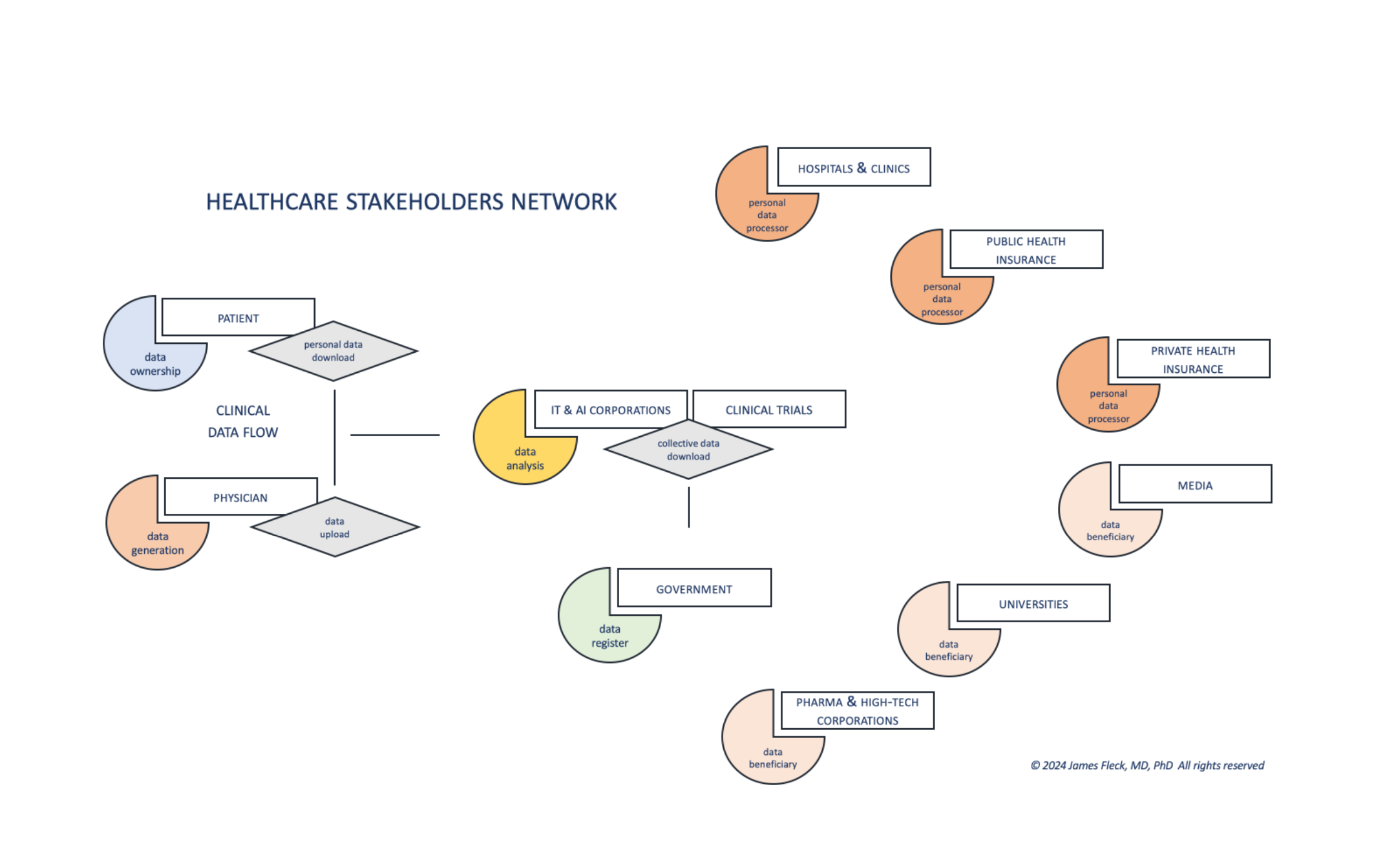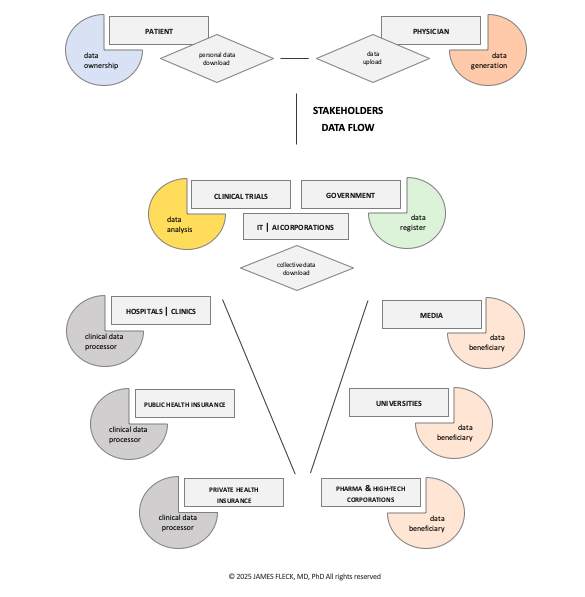James F Fleck, MD, PhD
Collective Intelligence Applied to Medicine
Catalyzing a healthcare stakeholder network
(assembling a new patient-centric clinical data flow based on collective intelligence) 2
Clinical data flow across all stakeholders in an ideal global healthcare model
Problems in the healthcare system are observed throughout the world. There are many stakeholders, whose roles and interests need to be understood and integrated for the benefit of the patient. The image below shows data flow in the healthcare stakeholder network. To bring together and keep healthcare stakeholders in harmony, some basic principles have to be respected and followed. Patients are the beginning and goal of the entire network and must always maintain ownership of their data. Download of each patient clinical data must be regulated by General Data Protection Regulation (GDPR), and its use subjected to informed consent. Patients must have the right to access their clinical data in real time and anywhere in the world. Doctors are responsible for generating clinical data, ensuring the quality of the information uploaded. However, it is necessary to create a friendly and collaborative platform that saves time in capturing clinical data, adding meaning and making this activity enjoyable and constructive. Patients should be encouraged to continually monitor clinical data uploaded and contribute positively to checking its authenticity. In a patient-centric care model, this routine is a natural consequence of a good doctor-patient relationship and will lead to better outcomes. Hopefully, better outcomes mean better cost-effectiveness, reducing the burden of healthcare costs on society as a whole. The downstream clinical data flow now encounters data analytics organizations (IT companies), where data will be processed, collectively and anonymously, in accordance with the ethically driven principles defined by GDPR. Local, state, and national governments would also use collective and anonymous data for better epidemiological signature of the most prevalent diseases. Global healthcare organizations would process more specific and qualified clinical data, in real time. By working in a cooperative network of healthcare stakeholders, hospitals and clinics would no longer deal with the difficult task of storing their patients’ records. All information would already be available online, facilitating local processing of clinical data and resolving its interoperability. Public and private health insurance organizations would now have access to clinical data in its original source, avoiding misinterpretation, malpractice and unnecessary repetition of exams and procedures. Pharmaceutical and high-tech companies would greatly benefit from accelerating phase IV clinical trials, reducing the long lead time in bringing new products to market. Universities and media would have a closer and more refined approach to knowledge translation, which would lead to faster and more reliable technical and public information.
2 Based on personal and online interview of the most representative healthcare stakeholder, using the pictorial allegory “How Mona Lisa could help generating collective intelligence?” described on www.ephr.org


Health is a state of harmony with the fractal expression of nature
